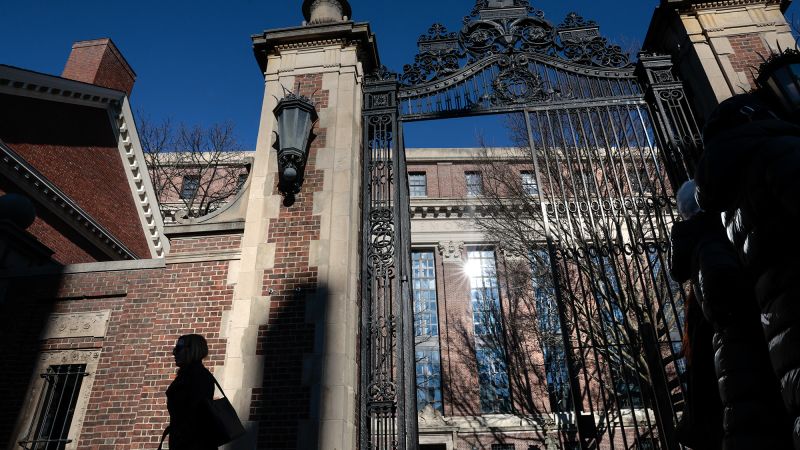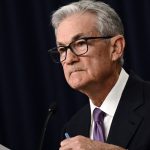The past few months have been an absolute nightmare for Harvard University.
Lawmakers and regulators are investigating. Donors are revolting. Early applications are down. And the Harvard board’s handpicked leader, Claudine Gay, just ended the shortest presidency in the university’s nearly 400-year history amid a firestorm of controversy.
Now, scrutiny is turning to how the Harvard Corporation, the powerful yet secretive board that runs the university, allowed this all to go so badly.
Management expert Jeffrey Sonnenfeld argues Harvard’s top board deserves a failing grade — and is calling for its members to be removed or step down.
“They have damaged the brand significantly. So, they deserve, generously, a D,” Sonnenfeld, a Yale professor and Harvard graduate, told CNN on Wednesday.
No board would have had an easy time contending with the historic challenges facing Harvard right now, from alleged antisemitism on campus to a plagiarism scandal facing its leader.
Yet the Harvard Corporation’s stunning 180 — going from unanimously backing Gay to accepting her resignation, in the span of just three weeks — does raise questions about what went wrong.
‘Tone-deaf to criticism’
Faced with allegations of plagiarism against Gay, the Harvard Corporation did launch an independent review — but it was lightning-fast.
Normally, such reviews into plagiarism charges can take anywhere from six months to two years. This one lasted less than two months.
In hindsight, the review was also incomplete, focusing only on Gay’s published works and writings, not her PhD dissertation that later found to be lacking citations.
“They were running cover for her, which is a bad board instinct,” Sonnenfeld said, drawing parallels to boards during infamous corporate scandals at Enron, WorldCom and Tyco. “Harvard is, of course, a national treasure. For them to be so tone-deaf to criticism was remarkable.”
Silence from Penny Pritzker
The 12-member Harvard Corporation, which describes itself as the “oldest corporation in the Western Hemisphere,” is charged with maintaining the university’s academic, physical and financial resources.
Those responsibilities include hiring and firing the university’s president.
Despite the enormous power the Corporation wields running one of America’s most prestigious universities, the board typically makes decisions behind closed doors with little transparency.
Today the Corporation is led by Penny Pritzker, the billionaire former Obama Cabinet secretary, and its members include former American Express CEO Ken Chenault, Chicago investor Paul Finnegan and Amherst College President Biddy Martin.
Pritzker has been notably silent, choosing to allow the Corporation’s broad statements speak instead of issuing a statement of her own. She continued that strategy even as the firestorm surrounding Gay’s disastrous Congressional hearing and her writings intensified.
“That silence was deafening,” Sonnenfeld said.
‘Leadership and governance failures’
There are also questions about whether the Harvard Corporation did its homework on Gay before hiring her following a speedy search process.
“I do think the relatively hasty action by the Corporation in the search process indicated to me that not a full review was made of qualified candidates who are out there,” Harvard donor Peter Malkin told The Harvard Crimson.
Malkin, the namesake of the Malkin Athletic Center, told the school paper that members of the Corporation who selected Gay should step down.
The issue of who is on the board is no small matter. It will be up to those members of the Harvard Corporation to decide who will be best to replace Gay and clean up the mess.
Sam Lessin, a venture capitalist and former Facebook executive, told CNN that Gay’s resignation is the beginning, not the end.
“It is a first step that demonstrates that Harvard is not lost, and can change,” said Lessin, who is attempting to run for another university board, the Harvard Board of Overseers. “Harvard still needs to address the deeper leadership and governance failures that came to a head this fall.”
A Harvard spokesperson declined to comment on the criticism.
The Harvard Corporation issued a statement on Tuesday saying it has accepted Gay’s resignation “with sorrow.”
“These past several months have seen Harvard and higher education face a series of sustained and unprecedented challenges,” The Harvard Corporation said. “In the face of escalating controversy and conflict, President Gay and the Fellows have sought to be guided by the best interests of the institution whose future progress and well-being we are together committed to uphold.”
The Corporation said the search for a new president will begin in “due course” and vowed the process will include “broad engagement and consultation” with the Harvard community.
It’s clear that the search for a new Harvard president will be a crucial one in this moment of tumult. What’s less clear is who exactly will be leading that search.
Read the full article here




